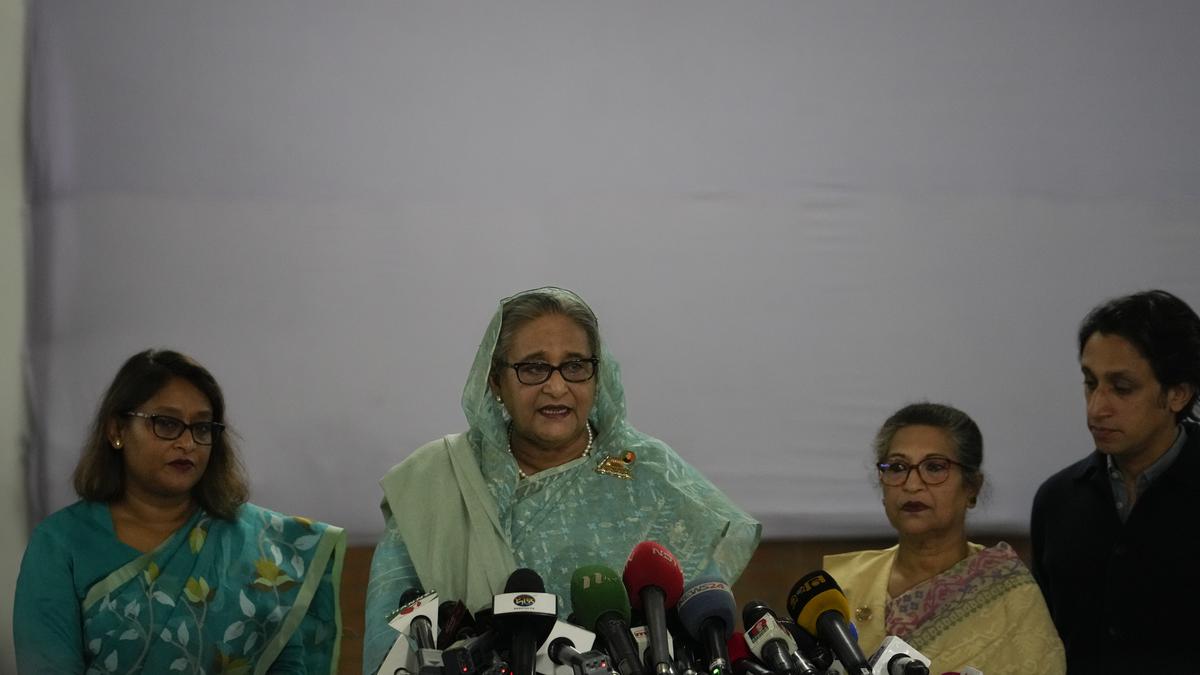
Voters cast ballots in a Bangladesh election marred by violence and an opposition boycott
The Hindu
Campaigning in the South Asian nation of 169 million has been marred with violence as at least 15 people have been killed in recent months. Hostilities reached a boiling point in late October, after a massive rally in Dhaka by the BNP saw clashes with police.
Voters in Bangladesh began casting their ballots on January 7 as polls opened in an election fraught with violence and a boycott from the main Opposition party, paving the way for Prime Minister Sheikh Hasina and her Awami League to seize a fourth consecutive term.
Authorities said at least 18 arson attacks were reported across the country since late Friday, with 10 of them targeting polling places. Four people died Friday in an arson attack on a passenger train heading toward the capital, Dhaka. The incidents have intensified tensions ahead of the parliamentary elections that the opposition Bangladesh Nationalist Party and its allied groups said they would shun.
Campaigning in the South Asian nation of 169 million has been marred with violence as at least 15 people have been killed in recent months. Hostilities reached a boiling point in late October, after a massive rally in Dhaka by the BNP saw clashes with police.
As the election neared, authorities blamed much of the violence on the BNP, who they accuse of seeking to sabotage the election. On Saturday, detectives arrested seven men belonging to the BNP and its youth wing for their alleged involvement in the passenger train attack. The opposition party denied any role in the incident, and say they are being blamed by authorities who want to discredit their “peaceful and nonviolent movement.”
On Sunday morning, Ms. Hasina and her daughter voted amid tight security at Dhaka City College, as other citizens lined up outside to cast their ballot.
The 76-year-old Hasina, the country’s longest-serving leader and one of its most consequential, is widely expected to be reelected for a fifth overall term.
But a victory would come with a deeply contentious political landscape. The vote, like previous elections, has been defined by the bitter rivalry between Hasina’s Awami League and BNP, led by former Premier Khaleda Zia, who is ailing and under house arrest on corruption charges.











